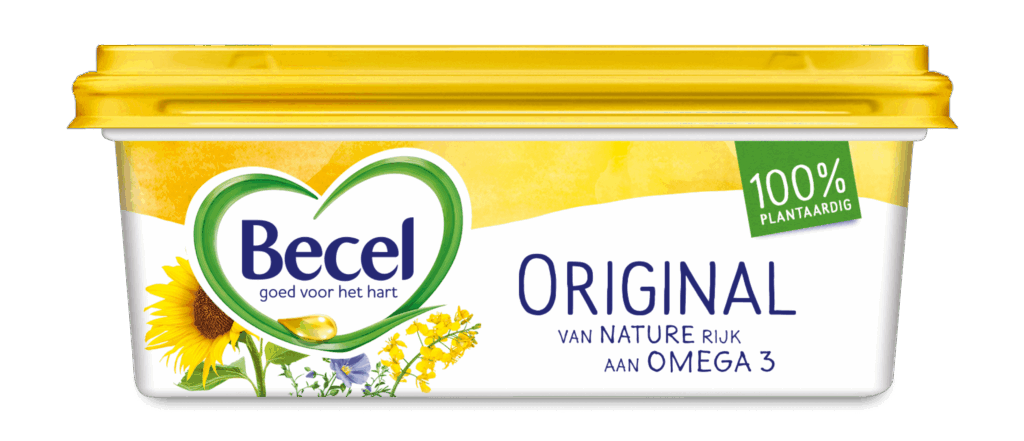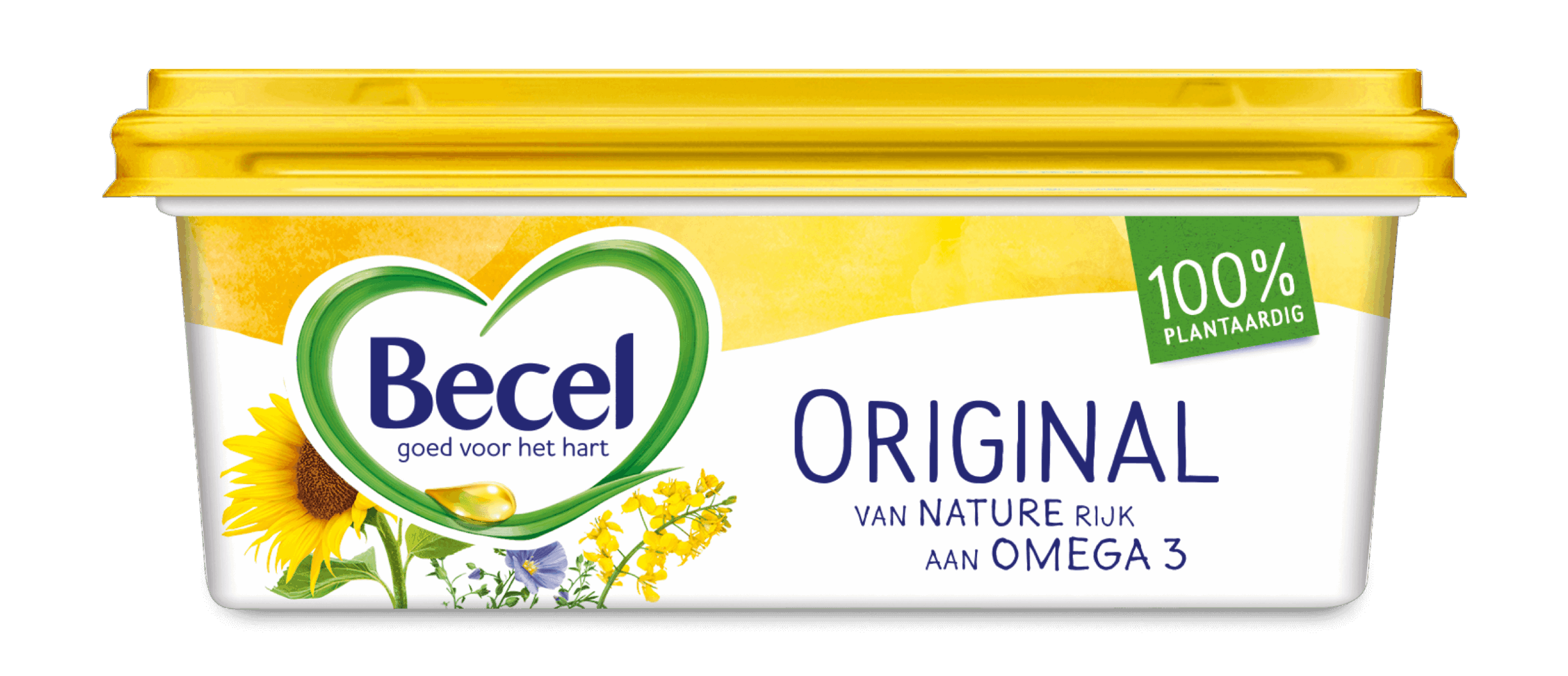
Becel Vegan Margarine: A Comprehensive Guide to Plant-Based Butter Alternatives
In recent years, the demand for plant-based alternatives to traditional dairy products has surged, driven by health concerns, ethical considerations, and environmental awareness. Among these alternatives, Becel Vegan Margarine stands out as a popular choice for those seeking a dairy-free and cholesterol-free spread. This comprehensive guide delves into the intricacies of Becel Vegan Margarine, exploring its ingredients, nutritional profile, uses, and its place in the broader landscape of vegan butter alternatives.
What is Becel Vegan Margarine?
Becel Vegan Margarine is a plant-based spread designed to mimic the taste and texture of traditional butter. Unlike butter, which is derived from animal milk, Becel Vegan Margarine is made from a blend of plant-derived oils, typically including sunflower, canola, and palm oils. It’s formulated to be free of dairy, gluten, and cholesterol, making it a suitable option for individuals with dietary restrictions or those following a vegan lifestyle.
Ingredients in Becel Vegan Margarine
Understanding the ingredients in Becel Vegan Margarine is crucial for making informed dietary choices. The specific ingredients can vary slightly depending on the region and formulation, but generally include:
- Plant-based Oils: Sunflower oil, canola oil, and sustainably sourced palm oil form the base of the margarine. These oils provide the fat content necessary for a butter-like texture.
- Water: Water is added to create the emulsion and contribute to the overall consistency.
- Salt: Salt enhances the flavor and acts as a preservative.
- Soy Lecithin: This emulsifier helps to bind the oil and water together, creating a smooth and stable product.
- Mono- and Diglycerides of Vegetable Oils: These are also emulsifiers that contribute to the texture and stability of the margarine.
- Citric Acid: Used as a preservative to maintain freshness.
- Natural Flavor: Natural flavors are added to enhance the taste and mimic the flavor of butter.
- Vitamin A Palmitate: Vitamin A is added for nutritional enrichment.
- Beta-Carotene: This provides the margarine with its yellow color.
Nutritional Information
A key consideration when choosing a margarine is its nutritional profile. Becel Vegan Margarine is typically lower in saturated fat and cholesterol-free compared to traditional butter. However, it’s important to pay attention to the overall fat content and the types of fats included. Here’s a general overview:
- Calories: Typically, one tablespoon (14g) contains around 60-70 calories.
- Total Fat: Approximately 7-8 grams per tablespoon.
- Saturated Fat: Lower than traditional butter, usually around 1-2 grams per tablespoon.
- Trans Fat: Becel Vegan Margarine is generally formulated to be trans-fat-free.
- Cholesterol: 0mg (cholesterol-free).
- Sodium: Varies, but typically around 70-80mg per tablespoon.
- Vitamin A: Often fortified with Vitamin A.
It is important to consult the specific product packaging for the most accurate and up-to-date nutritional information, as formulations can change.
Benefits of Using Becel Vegan Margarine
Choosing Becel Vegan Margarine offers several potential benefits:
- Dairy-Free: Suitable for individuals with lactose intolerance or dairy allergies.
- Vegan-Friendly: Aligns with a vegan lifestyle by avoiding animal-derived ingredients.
- Cholesterol-Free: Can be a healthier option for those concerned about cholesterol levels.
- Lower in Saturated Fat: Generally contains less saturated fat than traditional butter, potentially contributing to better heart health.
- Versatile: Can be used in a variety of cooking and baking applications.
How to Use Becel Vegan Margarine
Becel Vegan Margarine is incredibly versatile and can be used in many of the same ways as traditional butter:
- Spreading: Use it as a spread on toast, bread, or crackers.
- Cooking: Sauté vegetables, grill sandwiches, or pan-fry foods.
- Baking: Substitute it for butter in cakes, cookies, and other baked goods.
- Topping: Melt it over cooked vegetables, popcorn, or pasta.
When substituting Becel Vegan Margarine for butter in baking, it’s important to consider that it may affect the texture and moisture content of the final product. Some adjustments to the recipe may be necessary to achieve the desired results. [See also: Vegan Baking Tips and Tricks]
Comparing Becel Vegan Margarine to Other Vegan Butter Alternatives
The market for vegan butter alternatives is diverse, with various brands and formulations available. Here’s how Becel Vegan Margarine stacks up against some other popular options:
- Other Vegan Margarines: Many other brands offer vegan margarine made from different blends of plant-based oils. The taste, texture, and nutritional profiles can vary significantly.
- Coconut Oil-Based Spreads: These spreads are made primarily from coconut oil and tend to have a distinct coconut flavor. They are high in saturated fat, which may be a concern for some individuals.
- Olive Oil-Based Spreads: These spreads are made from olive oil and offer a healthier fat profile. However, they may have a stronger olive oil flavor that is not suitable for all applications.
- Nut-Based Butters: While technically not margarines, nut butters like cashew butter or almond butter can be used as spreads and in some baking applications. They offer a different flavor profile and nutritional benefits.
Choosing the right vegan butter alternative depends on individual preferences, dietary needs, and the intended use. Becel Vegan Margarine provides a neutral flavor and versatile application, making it a popular choice for many.
The Environmental Impact of Becel Vegan Margarine
The environmental impact of food production is an increasingly important consideration for consumers. Becel Vegan Margarine, being plant-based, generally has a lower environmental footprint than traditional butter, which involves dairy farming. However, the specific impact depends on the sourcing and production methods of the plant-based oils used.
Becel states that they are committed to sustainable sourcing, particularly for palm oil, which has been associated with deforestation and habitat loss. They aim to use sustainably sourced palm oil that is certified by organizations like the Roundtable on Sustainable Palm Oil (RSPO). [See also: Sustainable Palm Oil Practices]
Consumers who are concerned about the environmental impact of their food choices should look for products with sustainable sourcing certifications and consider the overall environmental footprint of the ingredients used.
Potential Drawbacks and Considerations
While Becel Vegan Margarine offers numerous benefits, there are also some potential drawbacks and considerations to keep in mind:
- Processed Ingredients: Margarine, including vegan varieties, is a processed food. Some individuals prefer to consume whole, unprocessed foods whenever possible.
- Fat Content: While lower in saturated fat than butter, Becel Vegan Margarine is still high in total fat. Moderation is important.
- Sodium Content: The sodium content can be a concern for individuals with sodium-sensitive hypertension.
- Ingredient Sensitivities: Some individuals may be sensitive or allergic to ingredients like soy lecithin or specific plant-based oils.
It’s always advisable to read the ingredient list carefully and consider any potential sensitivities or dietary restrictions.
Where to Buy Becel Vegan Margarine
Becel Vegan Margarine is widely available in most major grocery stores and supermarkets. It can typically be found in the refrigerated section alongside other butter and margarine products. It is also available for purchase online through various retailers.
The Future of Vegan Butter Alternatives
The market for vegan butter alternatives is expected to continue to grow as more consumers adopt plant-based diets and seek sustainable food options. Innovations in food technology are leading to the development of new and improved vegan butter alternatives with better taste, texture, and nutritional profiles. [See also: Innovations in Plant-Based Foods]
As consumer demand increases, manufacturers are likely to focus on improving the sustainability and transparency of their supply chains, ensuring that plant-based oils are sourced responsibly and that the environmental impact of production is minimized.
Conclusion
Becel Vegan Margarine is a popular and versatile plant-based alternative to traditional butter, offering a dairy-free, cholesterol-free, and generally lower-in-saturated-fat option for individuals with dietary restrictions or those following a vegan lifestyle. Its neutral flavor and wide availability make it a convenient choice for spreading, cooking, and baking. While it’s important to consider the ingredient list, nutritional profile, and potential environmental impact, Becel Vegan Margarine remains a valuable option in the growing landscape of plant-based foods. By understanding its composition, benefits, and uses, consumers can make informed choices that align with their health, ethical, and environmental values. Ultimately, Becel Vegan Margarine serves as a testament to the increasing accessibility and appeal of plant-based alternatives in the modern food market. Using Becel Vegan Margarine allows consumers to enjoy familiar flavors while adhering to their dietary preferences. For those seeking a plant-based substitute, Becel Vegan Margarine offers a reliable and readily available option. Its widespread use underscores the growing acceptance of Becel Vegan Margarine as a staple in many households. Whether for spreading on toast or baking delectable treats, Becel Vegan Margarine proves to be a versatile and dependable choice. Many find that Becel Vegan Margarine seamlessly integrates into their culinary routines, offering a guilt-free alternative to traditional butter. With its growing popularity, Becel Vegan Margarine continues to shape the future of plant-based eating. The benefits of choosing Becel Vegan Margarine extend beyond dietary restrictions, appealing to those seeking a more sustainable and ethical food source. Exploring the world of Becel Vegan Margarine opens doors to a variety of plant-based possibilities, enhancing both health and environmental consciousness.

